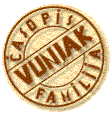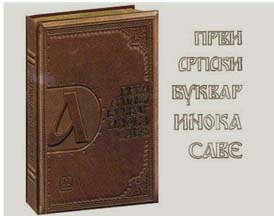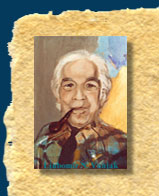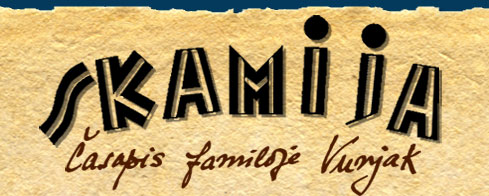A WARNING FROM FOUNDER OF SKAMIJA

Dear readers of Skamija, it is now a year since our magazine appeared, and it has established itself as a the magazine of the many branches of the Vunjak family. Its continuous existence at the time when many traditional values are being neglected, underestimated and forgotten proves that the members of the Vunjak family are a tough people who are aware of their place in the world. Let me quote a famous lawyer, Veljko Guberina, who has every right to be proud of his decades of professional successes in the courtroom and outside it, and who has always proudly pointed out that he originates from Lika. In his words, the people of Lika have had a significant influence on the history of Europe because they “stopped the Turks from ever setting their foot on the land that they, as the vanguard of Christendom, defended with their lives.” Tireless Guberina, an impressive example of a living encyclopedia, vividly describes “my people from that the “short-tempered people of Krajina” knew very well how the pen was as mighty as the sword, since both were needed to “defend the Serbian nation” and preserve its national identity. A conversation about the extremely important role of teachers and schools in the poorest villages of Lika led us to the name of Ljuba Vunjak, the creator of Skamija. Founding the magazine in 1934, Ljuba – a renowned journalist – named it after a specific type of school desk (detailed description is available in the first issue of our magazine) in which many generations of Serbian children first learned how to write, read and do math. In these school benches, children were acquiring their first knowledge of their identity and belonging, what is right and what is wrong, how they should act in life and while maturing, and when and why it is worth to sacrifice their life to higher causes.

Ljuba Vunjak has managed to condense all these meanings in the title of Skamija. Knowledge is power, and this power is gained in school, sitting at the school desk – this was Ljuba's message. After the liberation from German occupation, during the enthusiastic rebuilding of the country, literacy courses and evening schools became widely available. Many years have passed since that time, and we have entered a new century and a new millennium. We are witnessing the appearance of new specialized schools and private universities, and it might seem that old-style school benches belong to a museum of history of education. Still, even if we do place them in such museum and lock the front door so that no one can see them, they will still, with a persistence characteristic of Lika, warn us that illiteracy has not been eliminated. Today, there are 850,000 people in Serbia who can barely sign their own name. How can they make informed opinions, actively participate in the social life and make their contribution to the Serbian state?
Therefore, the old school desk – skamija – is not a relic of the past. Cut from a piece of hardwood, its simple appearance warns us that our present is tragic, while the future is uncertain.
Darko Ribnikar
Translated by Bojan R. Golubović


